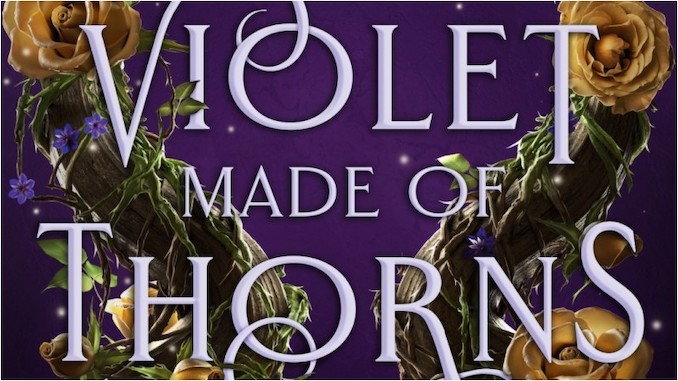Violet Made of Thorns Is a Fast-Paced Fairytale With a Refreshingly Difficult Heroine

Many books in the genre of YA fantasy tend to tick a lot of similar boxes. There’s the plucky heroine who discovers she’s a long-lost princess and must reclaim her family’s throne. There’s usually a kingdom under siege by mysterious forces or being ruled over by oppressive magical forces. Probably a brooding or semi-antagonistic love interest, and a seemingly impossible quest. Sometimes, a scrappy underground rebel faction is involved. And there are usually an awful lot of faeries, of either the magical or the extremely attractive variety. (Sometimes even both!)
This is a big part of the reason why Gina Chen’s Violet Made of Thorns feels like such a breath of fresh air in this genre space. Yes, her debut YA fantasy includes some of these—and several other—extremely familiar tropes. There’s a broody, rude potential love interest, a fairytale-like setting, and a kingdom under threat, after all. But Chen’s decision to center her story around an occasionally petty, unusually self-centered, and often straight-up unlikeable heroine ultimately reframes even the most familiar of story beats in unexpected and surprising ways, giving the novel a refreshingly different feel in this admittedly crowded fictional marketplace.
Violet Lune is a Seer, a witch who has the power to read the threads of people’s lives—either to take a look at their past deeds or glean what is to come in their futures. She saved the life of King of Auveny’s son, Prince Cyrus, when they were both children, and won the chance to trade her life of drudgery for a position of power and authority in the kingdom’s royal court. Ever since her goal has been a simple and straightforward one: Survival.
Whether that means lying about her magical visions on the order of the king or helping him manipulate his son to become the kind of man he wants him to be, she’s more than willing to do whatever it takes to make sure her own position is safe. Sharp-tongued, selfish, and an inveterate liar, Violet openly despises the politics and games of the courtly world she lives in even as she recognizes that the elevated position she so enjoys is only possible because of it. As you may have guessed already, Violet’s not here to make friends, and she’s not anyone’s hero. She’s not the sort of POV character that feels entirely trustworthy and Chen leans into this by repeatedly showing us that Violet’s willing to throw anyone or anything under the proverbial bus if she has to.
Set in a seemingly benign fairytale world, the Kingdom of Avueny eventually reveals itself to have as many layers and secrets as its protagonist. From the creeping rot infecting the magical forest known as Fairywoods to the strange, horned beasts that are inexplicably roaming the land, there are plenty of dark mysteries to be solved.
-

-

-

-

-

-

-

-

-

-

-

-

-

-

-

-

-

-

-

-

-

-

-

-

-

-

-

-

-

-

-

-

-

-

-

-

-

-

-

-








































